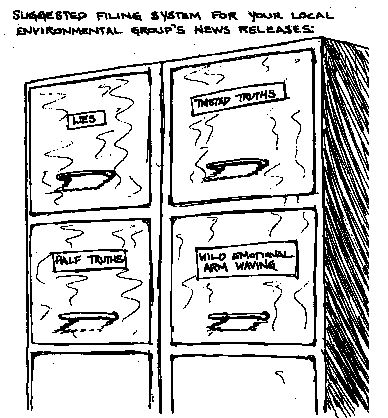Reports from British Columbia imply the new government of Gordon Campbell may be considering wholesale cuts to the province’s Geological Survey Branch.
The first public hint of this proposal came in late October, in one of the Campbell government’s “open cabinet meetings.” (In the B.C. Liberals’ unique understanding of Parliamentary democracy, cabinet meetings held in front of the television cameras enhance public involvement, or something.) Energy and Mines Minister Richard Neufeld told the cabinet his ministry “want[s] to do less” geoscience, as part of a government-wide slimming effort.
We can’t quarrel with the Campbell government’s overarching purpose, which is to reassert some sort of control over government finances. The three New Democratic Party governments that preceded Premier Campbell’s were massive spenders (though, to their credit, they at least taxed to match their spending, and did not pile up debt the way some less ideologically consistent governments have done). Minister Neufeld is right to be looking for things to trim.
The problem is that the government appears to have opted for an economically dumb way to shear expenditure. The previous left-wing governments entertained the illusion that government spending creates enduring economic growth; the B.C. Liberals have turned the tables and apparently decided everything government does should be cut, except for education and health care — the two sacred cows of provincial politics and, not coincidentally, the two places that spending cuts might really make a difference to the province’s books.
The mineral industry can always make the argument that the economic return from spending on government geoscience is far greater than that of most government programs. We would make the case that sensible economic planning is significantly aided by a clear understanding of the province’s resource potential. (We presume that this government’s ideology still permits it to do a certain amount of thinking about the economy, if only to manage the public purse.)
One of Minister Neufeld’s suggestions during the open cabinet meeting was that GSB scientists be moved “to where we can use them more in doing some work on underground resources and other basins — the Fraser Basin, the basin in the northwest and those kinds of things.” The obvious intent is that mineral-resources geologists would be shifted to oil and gas exploration areas; and the minister implied that mapping in the sedimentary basins would be useful to the oil and gas industry.
It is perhaps unfair to expect a cabinet minister to know this, but hydrocarbon exploration depends far less on bedrock mapping than it does on subsurface exploration, most particularly seismic profiling. This is something the energy industry does for itself without government help, and adding a detachment of geologists to bang on outcrops and say, “Uh-huh, more Shaftesbury shale,” is unlikely to be very constructive.
As well, the minister is behind the curve on resource prices. One thing it is entirely fair to expect a cabinet minister to know is that energy prices shot up drastically in 1999 and 2000, and have fallen again, so the Britich Columbia economy has seen the benefits, and the government has seen the tax revenue, that come from higher prices. To send the GSB chasing more hydrocarbon potential because the government expects that that is where the big money will be ignores the long-term nature of government scientific programs. Governments are no better than markets at predicting the future movements of commodity prices, and Mr. Neufeld would be wise to stay out of that game before he starts to look silly.
Cuts to the GSB may be penny-wise, but in the end the provincial government may find it has been pound-foolish.


Be the first to comment on "GSB cuts may be counterproductive"